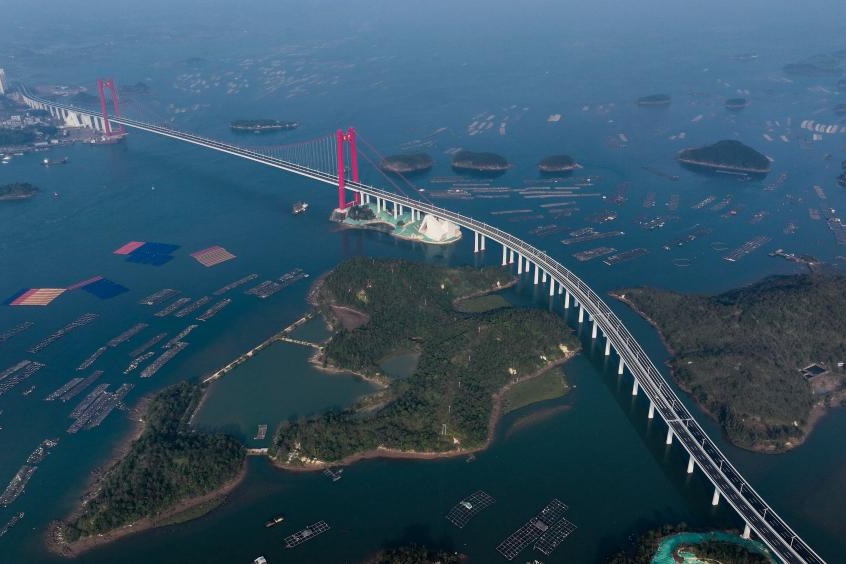Journalists watch for concrete outcomes


Xi'an in Shaanxi province, an ancient city that was once the capital of 13 Chinese dynasties, is making international headlines as it welcomes journalists from media outlets worldwide looking to capture the global implications of the China-Central Asia Summit.
According to the Chinese Foreign Ministry, about 300 reporters from Asia, Europe, Africa and Latin America will cover the two-day summit, starting on Thursday, which is set to bring together the heads of state of China, Kazakhstan, Kyrgyzstan, Tajikistan, Turkmenistan and Uzbekistan.
Some of these journalists have expressed their keen interest to know how the summit will enhance solidarity between China and Central Asia, and lead to concrete outcomes for pragmatic cooperation.
Valeriy Surganov, a journalist from Kazakhstan, said he expects the visa-free regime, which China and Kazakhstan have agreed to launch, to bring the peoples of the two countries closer. The agreement will allow Chinese citizens to stay in Kazakhstan without a visa for up to 30 calendar days and vice versa.
Another favorable factor for the relationship between China and Kazakhstan is that Kazakh President Kassym-Jomart Tokayev studied in China, knows the country very well and attaches great importance to ties with Beijing, Surganov said.
The summit will also lead to heightened dialogue and communication between China and Central Asia, and deliver more tangible benefits from their win-win cooperation, he added.
Andrew Hayley, from Reuters, said he was keen to know how the summit would promote energy cooperation between China and Central Asia, which has long been known for its rich natural gas and oil reserves.
"China is a major importer of crude oil and natural gas in the world, while Kazakhstan and Turkmenistan are major energy exporters. The energy cooperation between the two sides will have major implications on the global energy market. That is why it has grabbed our attention," he said.
Saud Faisal Malik, editor-in-chief of Observer Diplomat magazine in Pakistan, said the timing of the event in Xi'an is important because the participating countries are set to mark the 10th anniversary of the Belt and Road Initiative.
He said he would be looking for updates from the six countries' leaders on the BRI and their stand on the Russia-Ukraine conflict.
Alain Mazda, a journalist from Cameroon, said his purpose of covering the summit is to show his readers the global implications of the summit between China and Central Asia.
The world is linked, and what is happening in China may involve a citizen who is in the far north of Cameroon, or one who is in Morocco, or in Russia, he said. "I am interested in showing through this summit the ways and means set in motion to revive the economies of the world, especially in developing countries."
- China expands elderly care initiatives amid population ageing
- Beijing Court to handle more international commercial cases
- Explore the ancient hot springs in Guizhou
- Green peafowls: a symbol of China's cultural heritage and artistic inspiration
- China unveils global ocean prediction AI model
- Guangzhou to open 10 new metro, intercity rail lines in 2025




































